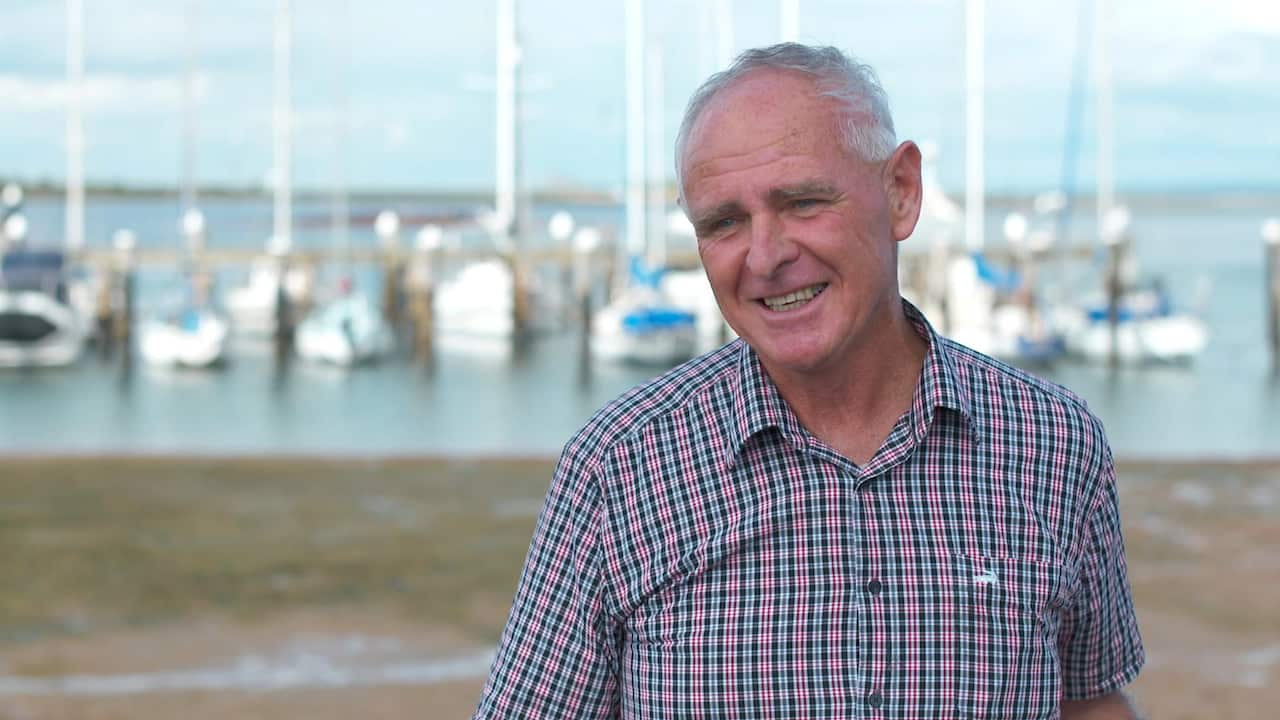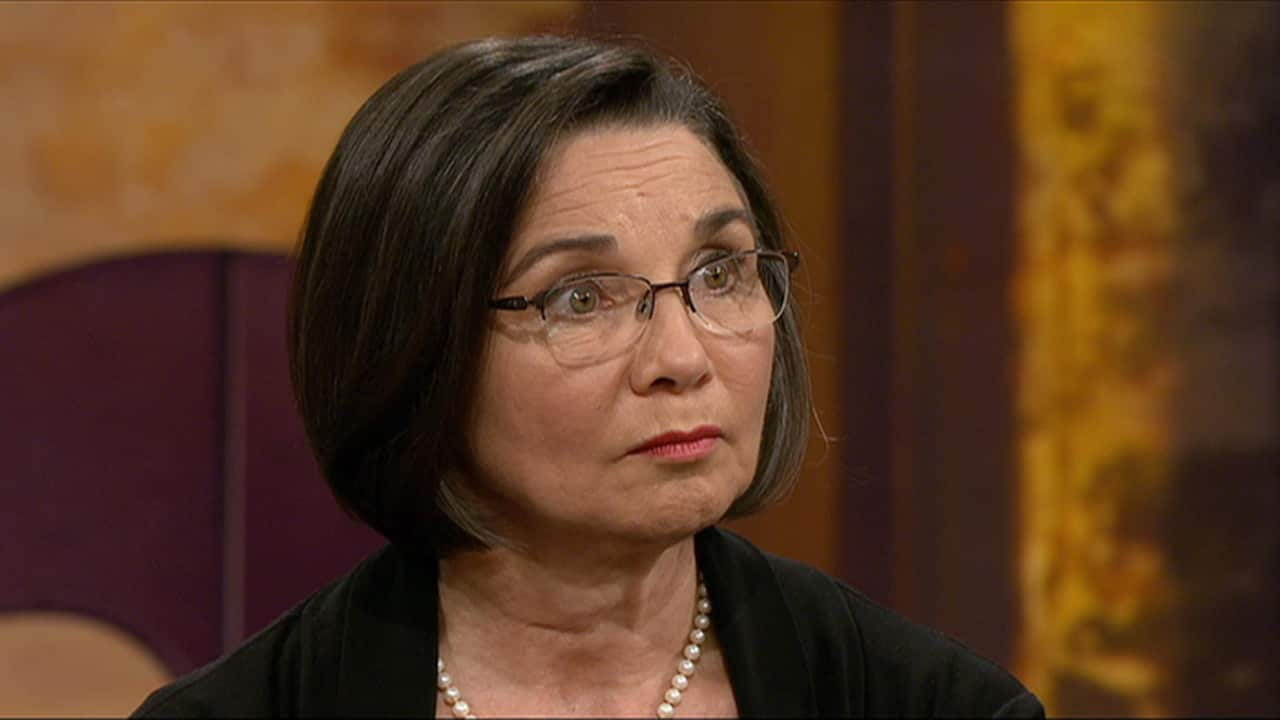Broadcaster Anne Deveson and AC/DC guitarist Malcolm Young are living with it, while the late US president Ronald Reagan, English author Terry Pratchett and former first lady Hazel Hawke all succumbed to it.
Dementia, a progressive and irreversible degeneration of the brain, is now considered Australia's second biggest killer behind heart disease.
It also affects about 47.5 million people worldwide, according to the World Health Organisation (WHO).
In Australia, an advocacy group says one person every six minutes is diagnosed with it.
The number of Australians living with dementia is currently over 340,000. However, without a major medical breakthrough this number is expected to soar to almost 900,000 by 2050, according to a government report.
This week Insight meets people living with dementia to hear of how they're living with it, and also from their loved ones about their experience with this illness. With no cure yet available, what's the best way to live with dementia?
Ray Morgan: "I know one day I'm going to be a human vegetable"
When he was in his early fifties, and after achieving all the things in his career, Ray Morgan retired as police superintendent. But a decade later, the Victorian man was diagnosed with dementia.
Although he admitted to being "very depressed" when he learned of this, Ray told SBS Insight he decided to put on a brave face because he just couldn't continue to "stay in this negative frame of mind."
"Dementia comes out in so many different forms with different people and I'm lucky at the moment that I can still talk and while I can I will, of course .... It's not until you live the experience that you start to understand what dementia really is all about."
Ray says a big turning point for him was hearing about Christine Bryden's story on the ABC. She was diagnosed at age 46 and has defied all expectations for people with dementia. In the ensuing 20 years, Christine has completed a post-graduate diploma, found love again and remarried, and has even written books about her journey.
"You can go for quite a few years and have a very good lifestyle with dementia."
Since Ray's prognosis 18 months ago, he has continued to live alone, organising his life around a highly structured and active routine.
"Now I've got dementia I've got something to focus on and I'm always rehearsing... I'm treating it like a challenge," the 63-year-old said.
"When they told me that I had dementia it really didn't worry me. I was feeling good, I was still doing the things I like doing in the world around me, but it was a second thing they said that really upset me and that was that I had to stop driving my motor car," the ex-police superintendent said.

Although he was initially worried about losing his mobility, Ray has since replaced his car with an electric bike. He also attends a weekly support group and leaves sticky notes around the house to help keep his life in order.
"I think people tend to just look at the late stage of dementia and think that's what you're going to be next week. And it's not [like that]. You can go for quite a few years and have a very good lifestyle with dementia."
Christine's story showed him the importance of staying positive even though Ray knows that the end point is "not going to be much fun".
"I've got people telling me 'I can't work out how you're talking so well. You've had this condition now three years and you're talking well and I just want work it out'. And I said well it's just the way I am lucky."
"I know one day I'm going to be a human vegetable," Ray says.
Kate Swaffer: "I think as a whole, even health care sector, thinks dementia is end stage"
In 2008, Kate Swaffer was just 49-years-old when she was diagnosed with younger onset frontal temporal dementia.
She said the prognosis was devastating and she "cried pretty much nonstop for weeks".
"At the time I was working full time. We had 17 and 18 year old boys, one doing year 12. I was studying at university, volunteering, you know, doing the usual mad mother thing, you know, no time for anything."
The former chef and nurse said that in spite of her illness, she has been able to pursue her academic goals and maintain a quality life.
"I like studying so it's a [sic] truly meaningful ... I did finish a couple of undergraduate degrees and I've also done a masters of science since then, but with a lot of support and extensions and double time for library borrowing of books and those types of things."
With her loving husband Peter by her side, whom she calls her "BUB (back-up-brain)", Kate says she refuses to let this condition define her and hopes people can see a different side to dementia patients.
"With or without dementia we're all changing and we don't stop seeing somebody or communicating with somebody just because they're changing."

The mother-of-two told SBS Insight that the assumption that patients will somehow admit defeat can sometimes become a self-fulfilling prophecy.
"I was told to give up work, give up driving, get my end of life affairs in order … if we weren't told to go home and give up, we wouldn't become hopeless, we wouldn't get this learned helplessness," Kate says.
"I think as a whole, even health care sector, thinks dementia is end-stage, meaning you know, we're either taking our clothes off somewhere inappropriately or dribbling down our front and it's not like that. There are many, many, many people around the world who also living better with dementia than the perception".
This week on Insight, Jenny Brockie will be speaking with patients and their carers on living well with dementia. Tune in 8.30pm Tuesday April 28 on SBS ONE.

